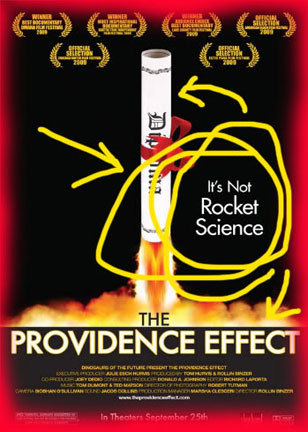
This is the story of a tragedy in the form of a promising boy’s death-–and a victory, in the form of a school called Providence St. Mel’s that is doing what sometimes seems all but impossible—namely, in a violence fraught area, sending 100 percent of its graduating class to college.
It is also a story about Paul Adams,the man who is behind the system that has made the Providence St. Mel’s so-called impossible victory happen.
Chicago, like Los Angeles, struggles with serious gang problems and a public school system that is, in many ways, dreadfully broken. In 2007, the system-wide graduation rate was 55 percent. For African American males in Chicago, it was only 40 percent.
And there is the violence. Since Chicago’s public school academic year began a little over three weeks ago, five Chicago students have been killed. In 2008, 30 school students were killed within the city’s boundaries.
Then on Thursday of last week, September 24, there was a murder that sent even the the most cynical Chicago residents into a bout of soul searching.
A 16-year-old honor student named Derrion Albert was attacked and beaten to death as he stood on the periphery of a fight between two groups of other kids. It all happened in front of two dozen witnesses, and right outside a local community center called Agape—divine, unconditional, self-sacrificing love.
By all accounts, Derrion Albert was not a gang member, not a problem kid. He was a churchgoing boy with good grades who had never been in a single fight in his life, said his grandfather who, together with the grandma, had been the ones to raise him. A kid who took care of his grandma when she got sick. Yet, he was beaten into unconsciousness and death by a bunch of boys who seemed to have no earthly reason. And the whole ghastly thing was caught on a cell phone video by yet another adolescent watching. In the video (which you can find, if you are so moved) the beatings seems entirely spontaneous. Casual even. And all the more horrifying because of its soccer-game-gotten-out-of-hand, Animal Farm-ish aura.
Predictably there has been a slew of outrage followed by the usual quickly-organized community meetings at which public figures have appeared to say sympathetic and encouraging things about all the changes that need to be made, that surely will be made. Jessie Jackson has made an appearance.
Now it seems even the White House is sending a contingent. U. S. Atty. Gen. Eric H. Holder Jr. and Education Secretary Arne Duncan will fly into Chicago next week to to talk about school violence.
But community members say they’ve heard all the promises before, and nothing much seems to happen.
By contrast, a half hour across town from the Roseland area where the beating death of Derrion Albert took place, one finds Providence St. Mel high school—a low cost private high school (once a parochial school that the Archdiocese decided to close) that is attended by nearly all lower-income African American kids—who all, nearly to a person, go on to college—over 50 percent of them to Tier 1 colleges and universities.
In 2006, Providence St. Mel’s director and guiding spirit, Paul Adams, decided to take on a new challenge by trying to transform a failing public elementary school. When Adams and his team took over Englewood elementary its scores were in the 9th percentile—circling the drain. Now they hover around the 50 percentile, a near miraculous jump. Adams says he will not be satisfied until they are much, much higher.
The so-called “Providence effect” has been chronicled in a hope-drenched feature length documentary called, well…. The Providence Effect. It opens in Los Angeles today, Friday.
(And Paul Adams will be in Los Angeles on Friday and Saturday night doing a Q & A at two of the theaters where the film is showing. Details at the end of the post.)
I spoke this week to Paul Adams about what he thought it would take to make the nation’s most troubled inner city schools successful, about the Derrion Albert murder, and about education and life in general. Here are clips from that conversation:

WITNESSLA: What are the steps to success that you could give to other urban educators who are hoping to replicate what you’ve done with Providence St. Mel and with Englewood?
PAUL ADAMS: First, you have to hire smart people and get the dummies out the classroom. Teachers who are not passionate and committed have to go. Teachers need to know the subject they are teaching and have the passion and the ability to get that knowledge out of their head and into the heads of the students.
And you have to have constant assessment.
I mean, think about it. We have quality control in every other industry, except education.
You also have to have the same standards for administrators. You need to vet your principals and only hire the best ones. It’s not rocket science. This is just common sense.
WLA: Yeah, well, LA Unified school district has been criticized for something we call The Dance of the Lemons: If an administrator is bad, we just move him or her to another school
PA: It’s happening all over the country. But condoning incompetence is killing our children. Literally killing them.
Look what happened to that boy who was beaten to death.
WLA: I’ve seen the video. It’s terrible. Really, really terrible.
PA: Terrible. But what happens is that so many of these kids don’t have marketable skills and they know it. They feel helpless and that leads to anger and violence. And that same pattern is happening in cities all over the country. But it doesn’t have to be like that.
When we talk about crime and violence and poverty, education is the pink elephant in the middle of the table that we’re ignoring.
But people want to say, Oh, it’s just happening in those neighborhoods. It doesn’t effect me. Sometimes I don’t think people will get it until we start having dead kids in the suburbs.
To me, it personally just hurts to see so many young people around the country without access to a good education. Education reduces crime. If you educate people, the boat begins to rise. High quality education is the key to a lot of our nation’s biggest problems.
WLA: Okay, now we need your advice to get us there. What are your other basic principles besides quality control for teachers and administrators? And how do we make education better when, in a state like California, education funds are being slashed.
PA: You need high expectations. There are no expectations for kids in so many of our schools. But here’s the thing. Raising expectations is something that any district could do tomorrow. High expectations don’t cost the system any money. It’s just a change in attitude.
WLA: Okay, good point. It’s not a budget line item.
PA: Right. At Providence St. Mel you’re expected to go to college. If you’re not interested in going to college, then maybe we aren’t the school for you. But most kids, if you give them the chance, find they do want that. And those expectations don’t cost us anything extra.
WLA: I’m guessing you don’t have to deal with teachers’ unions.
PA: We’ve learned you need to put the unions people and the administrators in front of parents and parent coalition groups and let them hear what those parents think.
WLA: In LA schools we have so many kids who are troubled and at risk. And they’re not prepared to buckle down and be disciplined like the St. Mel kids in the film. You must get some of those kids. If so, what do you do with them? Bounce them out?
PA: Not if we can help it. We have a nine step intervention system that we put kids through. We get the parents in there. You have to work really hard to get thrown out of Providence St. Mel’s. We work hard to keep a kid in.
We also work to keep kids out of special ed. Instead we try to get them classes that will help them catch up. We have classes after school, on Saturday….
WLA: Why did you decide to take over a failing public elementary school?
PA: Well because I think if we want to think it terms of widespread reform, we have to start with kindergarten. See, somewhere around 4th grade is when you start losing students because they’re bored to death with the same old nothing. But it doesn’t have to be that way.
WLA: Actually it was some of the kindergartners in the film who really got to me. They were little kids, but they also seemed intellectually turned on.
PA: They are. They’re amazing. But we constantly have to work to keep them interested. Still you can do it. It means you have to train teachers to think about kindergartners differently. And that requires treating teachers with a different kind of respect. We have denigrated our teachers in our school systems as if they don’t matter. You can’t do that.
WLA: With all your success, you must have a lot of people coming to you from the Chicago Public School system wanting advice as to how what you’ve done can be replicated in a public school setting.
PA: Actually no one has come.
WLA: What do you mean no one? Like not one person from the Chicago School District has come to visit St. Mel’s?
PA: Never. Not one.
WLA: You’re kidding. I’m sorry to press this, but not one as in zero people?
PA: Zero.
WLA: Wow. That is completely nuts.
PA: I think so.
So go see the film, The Providence Affect, as it gives a much fuller idea about how Paul Adams’ method works. Plus it is movie that makes you feel far more optimistic for having seen it.
As mentioned above, Paul Adams plus the film’s director, Rollin Binzer, will be in Los Angeles Friday and Saturday, October 2 and 3 and will do Q & A’s after the 7-ish p.m. shows at the following two theaters:
AMC Magic Johnson Crenshaw 15 – Friday
4020 Marlton Avenue
Los Angeles, CA 90008
Laemmle Monica 4-Plex – Saturday
1332 2nd Street
Santa Monica, CA 90401

Kids who get through the current school system unscathed aren’t newsworthy nowadays. The atrocious Derrion Albert murder got only a burp out of the wires and the local rags. How could we expect the kind of positive program with results that Paul Adams represents to emit any reaction in this mindset we’re in? Maybe as a people we need to accentuate the positive ELIMINATE the negative. How’s the rest of it go? Anyway this good post needed a comment, and the “Providence Effect” doesn’t necassarily need a leg up because they seem to have the situation well in hand. Good Work!
[…] public school leaders come to him for advice on how to run a successful inner-city school. “Actually, no one has come,” he […]
now 50 years old with a three year old grand daughter and two yaer old grand son needing and wanting to learn tearfully many obsticles yet nothing worth investing eduction dollars on. All avenues not seeming worthy. Is there a paul adams school near Cincinnati Ohio.
grand mother wanting to give support where it’s does the best.